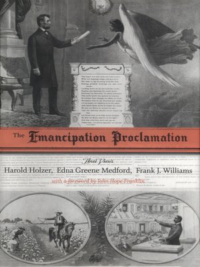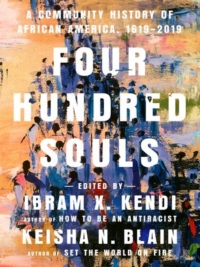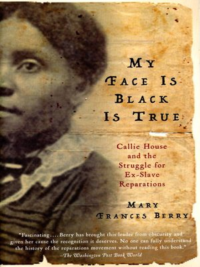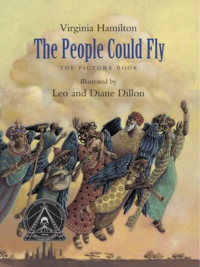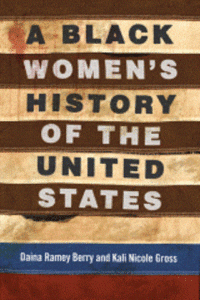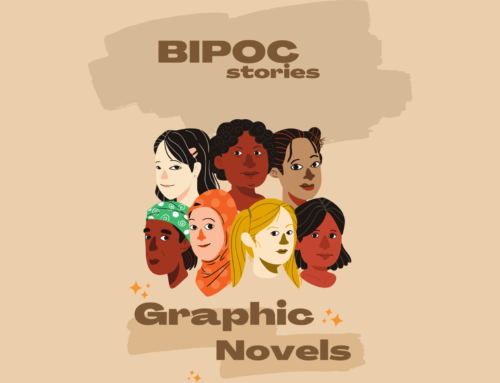For Juneteenth, which is also known as African American Freedom Day or Emancipation day, we honor the date on June 19th, 1865. This was the day when the federal army reached Galveston, Texas, and ensured that all 250,000 slaves in the state would be freed. This was two months after the end of the Civil War and two years after President Lincoln issued the Emancipation Proclamation. Below, you will find a list of books to help you learn more about this historic day!

On Juneteenth by Annette Gordon-Reed
(From Cosmos) It is staggering that there is no date commemorating the end of slavery in the United States.” -Annette Gordon-Reed.
The essential, sweeping story of Juneteenth’s integral importance to American history, as told by a Pulitzer Prize-winning historian and Texas native. Interweaving American history, dramatic family chronicle, and searing episodes of memoir, Annette Gordon-Reed, the descendant of enslaved people brought to Texas in the 1850s, recounts the origins of Juneteenth and explores the legacies of the holiday that remain with us. From the earliest presence of black people in Texas-in the 1500s, well before enslaved Africans arrived in Jamestown-to the day in Galveston on June 19, 1865, when General Gordon Granger announced the end of slavery, Gordon-Reed’s insightful and inspiring essays present the saga of a “frontier” peopled by Native Americans, Anglos, Tejanos, and Blacks that became a slaveholder’s republic. Reworking the “Alamo” framework, Gordon-Reed shows that the slave-and race-based economy not only defined this fractious era of Texas independence, but precipitated the Mexican-American War and the resulting Civil War. A commemoration of Juneteenth and the fraught legacies of slavery that still persist, On Juneteenth is stark reminder that the fight for equality is ongoing.”
The Emancipation Proclamation: Three Views (Social, Political, Iconographic) by Harold Holzer, Edna Greene Medford & Frank J. Williams
(From Overdrive) Of all the documents in American history, Lincoln’s Emancipation Proclamation ranks among the most important. It began the process of freeing four million Americans from slavery and led to constitutional amendments that ensure equal protections for all Americans. Drawing on primary sources, this book describes the economic and political conditions and thinking that led to the Emancipation Proclamation; the profound impact it had on the outcome of the Civil War and the period immediately following; and ways the document, through the Thirteenth and Fourteenth Amendments, continues to affect society today. This book also includes compelling images and little-known facts of interest.
Four Hundred Souls: A Community History of African America, 1619-2019 Edited by Ibram X. Kendi & Keisha N. Blain
(From Hoopla) The story begins in 1619—a year before the Mayflower—when the White Lion disgorges “some 20-and-odd Negroes” onto the shores of Virginia, inaugurating the African presence in what would become the United States. It takes us to the present, when African Americans, descendants of those on the White Lion and a thousand other routes to this country, continue a journey defined by inhuman oppression, visionary struggles, stunning achievements, and millions of ordinary lives passing through extraordinary history.
Four Hundred Souls is a unique one-volume “community” history of African Americans. The editors, Ibram X. Kendi and Keisha N. Blain, have assembled ninety brilliant writers, each of whom takes on a five-year period of that four-hundred-year span. The writers explore their periods through a variety of techniques: historical essays, short stories, personal vignettes, and fiery polemics. They approach history from various perspectives: through the eyes of towering historical icons or the untold stories of ordinary people; through places, laws, and objects. While themes of resistance and struggle, of hope and reinvention, course through the book, this collection of diverse pieces from ninety different minds, reflecting ninety different perspectives, fundamentally deconstructs the idea that Africans in America are a monolith—instead it unlocks the startling range of experiences and ideas that have always existed within the community of Blackness.
This is a history that illuminates our past and gives us new ways of thinking about our future, written by the most vital and essential voices of our present.
My Face is Black is True: Callie House and the Struggle for Ex-Slave Reparations by Mary Frances Berry
(From Hoopla) Award-winning Civil Rights advocate, Mary Frances Berry, sheds new light on the fight for reparations. Callie House, an ex-slave who led the fight, founded the Ex-Slave Mutual Relief, Bounty, and Pension Association in 1899. Defying conventions of race, class, and gender, Callie led the organization in an attempt to petition the government for the pension promised them as freedmen.
The People Could Fly: American Black Folktales told by Virginia Hamilton
(From Hoopla) “THE PEOPLE COULD FLY,” the title story in Virginia Hamilton’s prize-winning American Black folktale collection, is a fantasy tale of the slaves who possessed the ancient magic words that enabled them to literally fly away to freedom. And it is a moving tale of those who did not have the opportunity to “fly” away, who remained slaves with only their imaginations to set them free as they told and retold this tale.
Leo and Diane Dillon have created powerful new illustrations in full color for every page of this picture book presentation of Virginia Hamilton’s most beloved tale. The author’s original historical note as well as her previously unpublished notes are included.
A Black Women’s History of the United States by Daina Ramey Berry & Kali Nicole Gross
(From Overdrive)In centering Black women’s stories, two award-winning historians seek both to empower African American women and to show their allies that Black women’s unique ability to make their own communities while combating centuries of oppression is an essential component in our continued resistance to systemic racism and sexism. Daina Ramey Berry and Kali Nicole Gross offer an examination and celebration of Black womanhood, beginning with the first African women who arrived in what became the United States to African American women of today.
A Black Women’s History of the United States reaches far beyond a single narrative to showcase Black women’s lives in all their fraught complexities. Berry and Gross prioritize many voices: enslaved women, freedwomen, religious leaders, artists, queer women, activists, and women who lived outside the law. The result is a starting point for exploring Black women’s history and a testament to the beauty, richness, rhythm, tragedy, heartbreak, rage, and enduring love that abounds in the spirit of Black women in communities throughout the nation.


